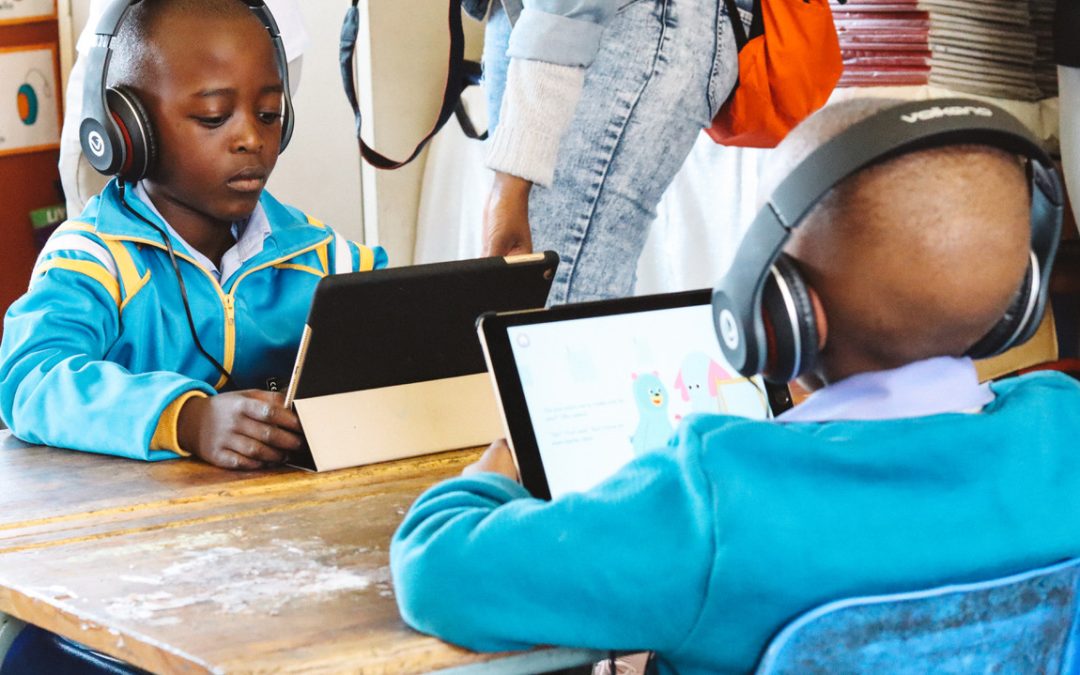Dyslexia is often misunderstood, even in today’s rapidly evolving educational landscape. Dyslexia remains largely undiagnosed, despite it affecting many South Africans, particularly in under-resourced communities. With October being Dyslexia Awareness Month, now is the time to remember how much work needs to be done to bridge the literacy gap faced by learners with dyslexia, writes Zulaikha Goolam, Disability and Inclusion Programme Manager for iSchoolAfrica, an initiative dedicated to transforming education through technology.
Dyslexia is a neurological condition that affects an individual’s literacy abilities, namely, to read, spell and write. It’s important to note that dyslexia is not linked to intelligence.
Dyslexia accounts for 70%-80% of all learning disabilities globally, impacting reading, spelling, and phonological processing. In South Africa, about 10% of the population exhibits signs of dyslexia. Yet, despite its high prevalence, due to limited resources, particularly in rural areas, early identification and support is often hard to find.
One of the major obstacles for learners with dyslexia is the lack of awareness and understanding. Parents, teachers and school administrators may not recognise the signs, leading to delays in diagnosis and intervention. The indicators of dyslexia are often subtle—speech delay, difficulty following directions, trouble with simple rhymes and challenges in learning to sound out new words. By the time many learners are identified, they’ve likely already fallen behind, grappling with low self-esteem, emotional instability and frustration.
In response to this need, the South African government introduced the SIAS (Screening, Identification, Assessment, and Support) Policy in 2014, providing a framework for identifying and supporting learners with dyslexia. But the rollout since then has been slow, particularly in rural communities where access to resources remains limited, with recent data revealing that 78% of Grade 4 students in South Africa are unable to meet the lowest international benchmarks for reading comprehension. This staggering figure highlights the urgent need for intervention.
iSchoolAfrica: Leveraging Technology for Change
Since 2009, iSchoolAfrica has been transforming education for over 100,000 South African learners through cutting-edge technology. Recognising the unique challenges faced by learners with dyslexia, iSchoolAfrica has tailored its approach to meet the needs of learners with diverse learning abilities, particularly those in under-resourced areas.
The impact behind iSchoolAfrica lies in its use of Apple technology, including the iPad, which offers a range of built-in accessibility features that make learning more inclusive. For learners with dyslexia, in particular, these tools are game-changers. The iPad’s accessibility options—such as Zoom, Hover Text, Bold Text, Contrast Adjustments, and Colour Filters—help learners mitigate their literacy difficulties. Phonics lessons can come to life through apps like iMovie, which enables learners to create movies and visual stories, while GarageBand can help develop phonological awareness through interactive alphabet songs.
For teachers, iSchoolAfrica provides training and resources to ensure they can identify early signs of dyslexia and provide the necessary support. The Early Learning iSchoolAfrica programme, aimed at preschool and Grade R educators, focuses on three critical areas of development: social and emotional growth, language and literacy, and numeracy skills. This equips educators with the skills to closely monitor learners’ progress, offering timely interventions when challenges arise.
By integrating technology with forward-thinking education practices, iSchoolAfrica is creating an inclusive learning environment where all learners, regardless of their abilities, can thrive. This is especially important for children living with dyslexia, who, without the right support, often experience low self-esteem and emotional distress. With the right tools, however, these learners can unlock their full potential.
The Road Ahead: Building a Supportive Educational Ecosystem
Despite the challenges, early identification and intervention can make a significant difference in the lives of learners with dyslexia. Dyslexia can be detected as early as preschool, and research shows that early childhood intervention significantly improves outcomes. Boys are more likely to be diagnosed, though the condition affects both genders.
At iSchoolAfrica, the goal isn’t just to provide technology but to empower educators, learners, and communities with the tools and knowledge they need to support learners with dyslexia. Through technology, innovative teaching practices, and a focus on inclusivity, iSchoolAfrica is working to close the literacy gap that affects so many South African children.
Dyslexia awareness is key. As Dyslexia Awareness Month reminds us, learners with dyslexia are not less capable—they just learn differently.
With the support of organisations like ours, combining teacher empowerment and education with learner motivation and the correct resources, they can achieve their full potential and thrive in an increasingly digital world. Because together, we can close the literacy gap and ensure that every child, regardless of learning challenges, has the opportunity to succeed.


